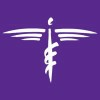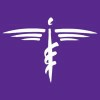Given the sheer volume of knowledge and skills that future health care providers and scientists must acquire, it is important to teach them in ways that optimize their learning.
Toward this goal, research by Cali Bills and Andrew Mannisto, second-year students in the osteopathic medicine program at Des Moines University Medicine and Health Sciences, and Martin Schmidt, Ph.D., professor of biochemistry and nutrition and a curriculum fellow in the College of Osteopathic Medicine, explored the benefits of small-group discussions among DMU students in different health professions programs.
A poster about their research, “Fostering Interprofessional Collaboration Skills Through Small Group Case-Based Learning,” recently won first place among the faculty poster finalists in the annual poster competition at the American Association of Colleges of Osteopathic Medicine’s annual conference.
The three researchers based their work on student evaluations of two case-based learning sessions in which groups of six students discussed a clinical case about children with inborn errors of metabolism, which are rare genetic disorders. Students in the groups represented five DMU programs — osteopathic medicine, podiatric medicine, anatomy, biomedical sciences and physician assistant studies. The poster authors wanted to know whether including PA students who complete their degrees in two years versus four years for osteopathic and podiatric medical students would enhance clinical reasoning and learning among all the students.
“PA students used to be involved in these sessions, which was very well-received,” Schmidt says. “When the program’s curriculum was revised, there was no time to do that. Our question was whether it was worth doing again.”
It’s a valuable question since physicians and physician assistants interact in many medical settings. Bills, Mannisto and Schmidt asked student participants in the two case-based learning sessions to complete session evaluations to assess their confidence in the material, interprofessional teamwork and clinical reasoning skills. All students showed gains in these areas.
“Preliminary data show that the case discussion format provides a great forum to practice clinical problem-solving in an interprofessional environment,” they stated in the poster description. “Longitudinal tracking of learning outcomes over repeated sessions showed diminishing returns in the areas of teamwork and integration, suggesting that the maximum benefit of this labor-intensive exercise can be obtained in just a single session.”
“Interacting with students in other programs helps get us ready for what we’ll see in our careers,” Mannisto says.
Interprofessional experiences go beyond “social teamwork,” Schmidt adds. “It fosters efficient teamwork and effective communications, which can result in better patient care.”
The students also enjoyed presenting the poster at the AACOM conference, which was sold out. Bills and Mannisto talked with physicians and faculty from other institutions interested in incorporating interprofessional education into their curricula.
“I hadn’t been to a conference or presented a poster before, so it was a good experience learning the logistics,” Bills says. “I’m also more drawn to human research versus bench research, so the project was a vehicle to learn that approach.”
Their work was supported by grant funding from AACOM. Schmidt plans to organize similar interprofessional small-group case-based learning sessions next academic year.


